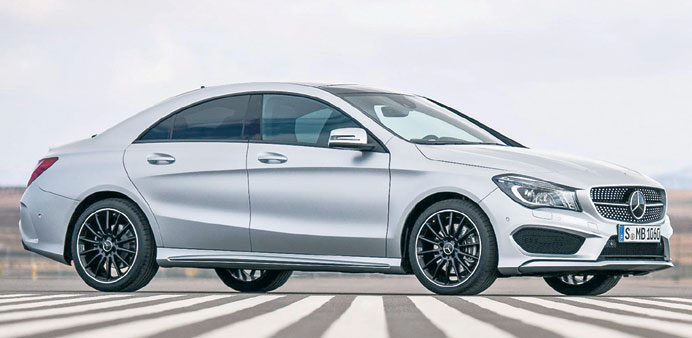In the European Union, economic giant Germany is rarely known to be an easy partner. But when its automobile industry is at stake, the gloves really come off.
In the last month, the usually eco-conscious country has delivered a knock-out punch to EU emission-curbing measures and has resisted a separate ban on an environmentally harmful automobile refrigerant — irritating the bloc and competing car nations such as France.
“Germany revives the C02 war,” the French daily Le Figaro proclaimed this week.
German manufacturers, who specialise in powerful, gas-guzzling cars, contend that limits on car emissions discriminate against them and in effect favour French and Italian makers of small cars.
Germany has lobbied for so-called super-credits, which would allow manufacturers such as Mercedes or BMW to stay within EU targets if they include electric or hybrid models in their product ranges.
In June, alarm bells went off in Berlin when negotiators from the EU’s governments and parliament struck a new deal on car emission limits that from Germany’s view watered down the super-credits.
German Chancellor Angela Merkel personally phoned Irish Prime Minister Enda Kenny — whose country then held the EU’s presidency — to up the pressure, according to sources.
A few days later, EU member states delayed the new measures at what was supposed to be a rubber-stamping meeting. The proposal is due to be taken up again in the autumn, although observers don’t expect any movement before Germany holds elections in September.
“It’s unprecedented in EU environmental policymaking that the pressure of one country delays a vote in an attempt to overturn a fairly negotiated agreement,” Greg Archer of the campaign group Transport and Environment has said.
The “narrow, short-term interests of some German carmakers” helped postpone measures that would “ultimately benefit drivers, the sluggish EU economy and our environment,” he charged.
Hundreds of thousands of people are employed in Germany by carmakers and their related industries.
Germany hasn’t won many favours with its other target either - the air-conditioning refrigerant R134a. Berlin has refused to enforce an EU ban on use of the product in cars because its alternative has been deemed unsafe.
The EU’s executive, the European Commission, will start considering this month whether it should launch infringement proceedings against Berlin over the matter, which could result in court proceedings and hefty fines.
The EU argues that the prohibition of R134a is key to “reducing the environmental footprint of our automotive industry.”
But Daimler, the company that is home to the luxury Mercedes brand, contends that the alternative R1234yf could harm passengers and fire-fighters should it ignite.
German media have reported that test crashes where the cars’ turbochargers were heated to 650°degrees Celsius — typical after a long, fast drive on a German autobahn — led to fires and the release of hydrofluoric acid, a substance that can permanently damage the lungs and eyes and can even dissolve glass.
Germany’s environmental agency has backed Daimler, warning that cars would need massive re-engineering to be safe again with R1234yf. Support has also come from the environmental group Greenpeace, which wants a transition to a more “natural” coolant like carbon dioxide.
CO2, while bad for the climate, might make a better refrigerant than R134a, and the Germans would like extra time to devise air conditioners that could employ it.
Mercedes’ most important model, the completely revamped top-of-the-line S-Class, is not caught up in the controversy yet because its certification was issued before 2011.
For its new Mercedes A-, B- SL- and CLA-class cars, Daimler attempted to side-step the EU guidelines by working with old certifications for earlier models using R134a.
But then came a shot across the bow from France.
In June, the country decided to temporarily block the registration of compact Mercedes cars on its territory until Daimler complies with the EU refrigerant ban.
When a court suspended that decision, the French government promptly bolstered it by invoking a European safeguard clause - despite warnings from Mercedes retailers that the affected models make up more than 50% of their sales in France.
Germany may be the EU’s economic heavyweight, but it cannot just do as it pleases, French officials argue privately.
“Germany and its manufacturers ... have to comply with European rules — even if they are not convenient,” government sources told Le Figaro.
Daimler, however, is not ready to give in just yet. It will challenge the Paris blockade in court, French media has reported.

